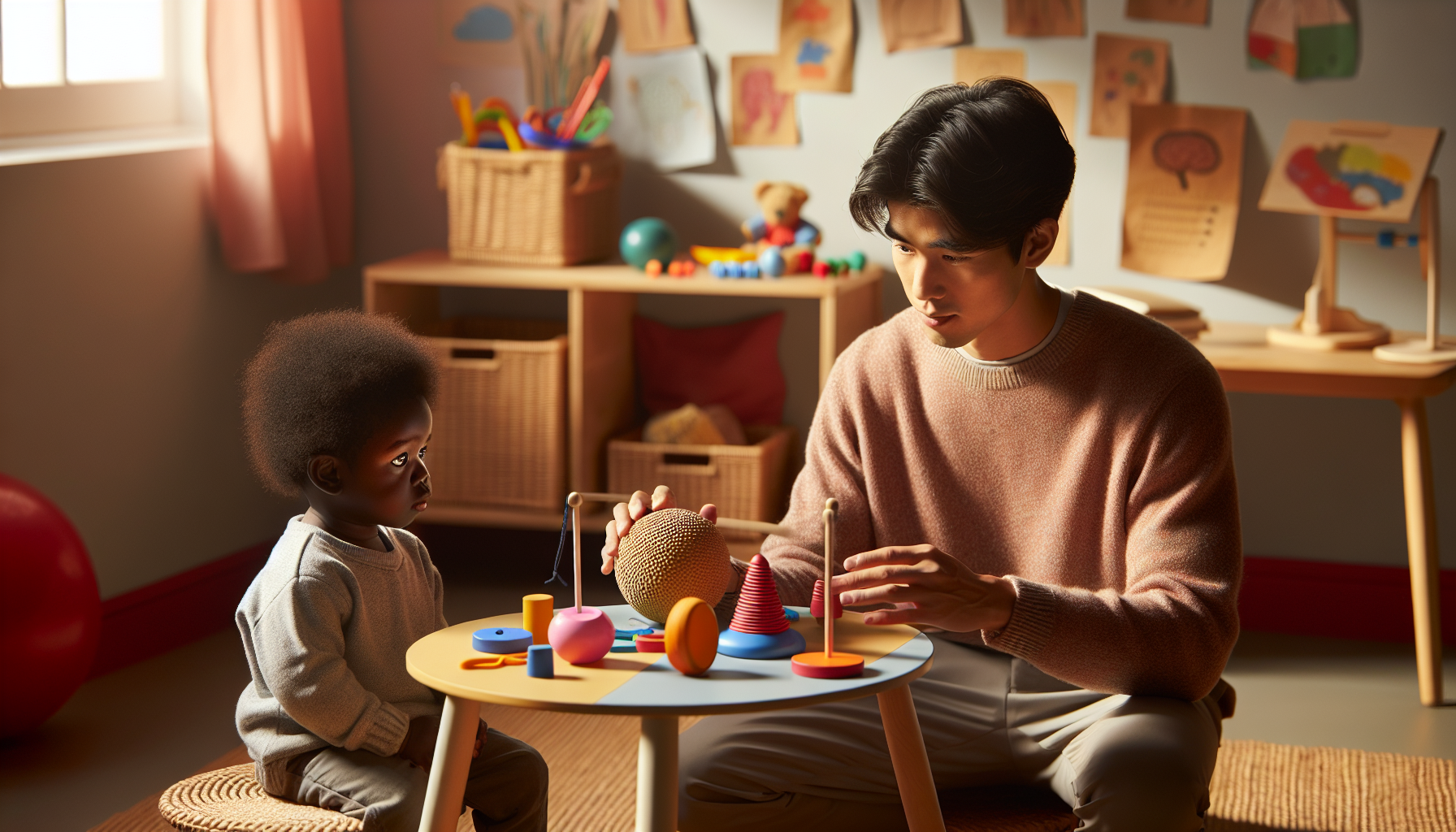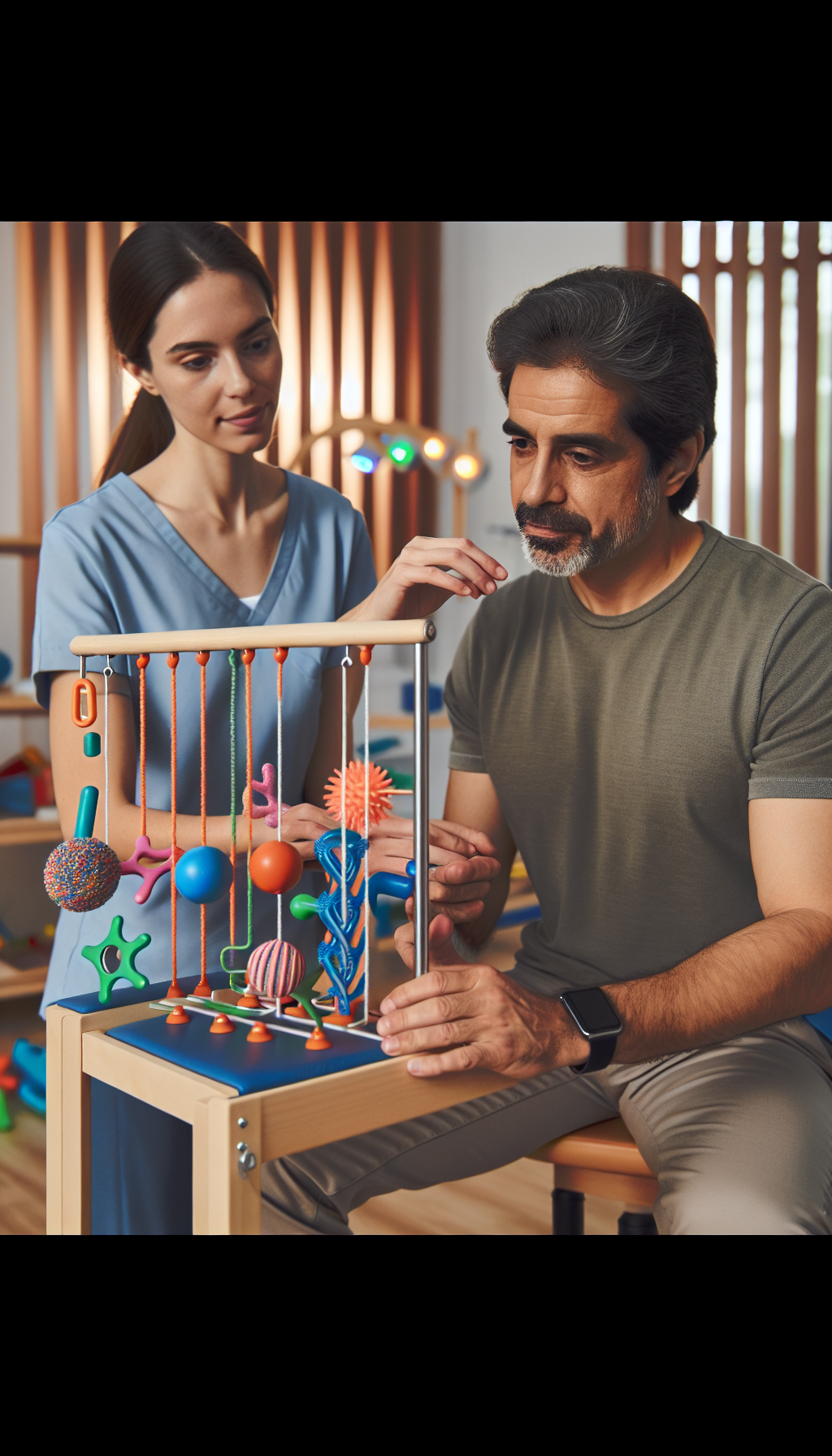Occupational therapy (OT) is a vital field that aids individuals across various stages of life to develop, recover, or maintain the daily living and work skills that are crucial for a fulfilling and functional life. One of the key areas where OT shows significant impact is in the development and enhancement of sensory skills. Sensory skills relate to how we perceive and respond to different stimuli through our senses. For many, especially children and individuals with sensory processing disorders, occupational therapy can provide the tools and techniques needed to navigate their sensory experiences effectively.
The Foundation of Sensory Health
Sensory health is an essential component of overall well-being, influencing how one interacts with their environment and conducts everyday tasks. It encompasses all the senses: tactile, auditory, visual, olfactory, gustatory, proprioceptive, and vestibular. Each sense contributes to the complex sensory processing mechanisms that enable individuals to interpret and respond to their surroundings. For a comprehensive understanding of sensory health and its importance, AvixHealth’s article on sensory health offers valuable insights.
The Role of Occupational Therapy in Sensory Skill Development
Occupational therapists are trained to identify and address sensory challenges. Through a process called sensory integration, they help individuals to process and respond to sensory information more effectively. This can be particularly beneficial for children with developmental delays, autism spectrum disorders, or sensory processing disorders, but also extends to adults who experience sensory difficulties due to various conditions.
Sensory Integration Techniques
A cornerstone of OT in sensory skill development is the use of sensory integration techniques. These methods are designed to help individuals experience and cope with sensory input in a controlled, therapeutic setting, gradually improving their ability to process senses appropriately. Sensory integration can involve a range of activities, from simple tactile stimulation to complex coordination tasks that integrate multiple sensory inputs.
Creating a Multisensory Environment
Another aspect of OT is helping to create a multisensory environment that can stimulate learning and development. For individuals with learning disabilities, such an environment can be particularly beneficial. The article on Creating a Multisensory Environment for Learning Disabilities provides practical advice on how to establish an inclusive space that caters to diverse sensory needs.
Sensory Play and Development in Early Childhood
Sensory play is a critical part of early childhood development, allowing children to explore their world through sensory experiences. Engaging in play that stimulates the senses fosters cognitive growth, fine and gross motor skills, problem-solving abilities, and social interaction. Occupational therapy utilizes sensory play to encourage these developmental milestones. To dive deeper into this subject, consider reading about The Importance of Sensory Play in Early Childhood.
Addressing Sensory Processing and Behavior Management
For children and adults alike, sensory processing can significantly influence behavior. Occupational therapists use their expertise to identify the link between sensory input and behavioral responses. In doing so, they can implement strategies to manage behavior through sensory-based interventions. More on this connection can be found in the discussion on Sensory Processing and Its Role in Behavior Management.
Sensory Diets and ADHD
A sensory diet is a personalized activity plan designed to provide the sensory input a person needs to stay focused and organized throughout the day. For individuals with ADHD, a sensory diet can be particularly effective in managing symptoms. Occupational therapists develop these diets to cater to specific sensory needs, which can include activities like heavy work, tactile play, or vestibular input. Learn more about this approach in the context of ADHD by visiting The Role of Sensory Diets in Managing ADHD Symptoms.
Sensory Skills and Personal Development
The development of sensory skills is not just about addressing challenges or disorders; it is also about personal growth and development. Being aware of and in tune with one’s sensory preferences and aversions can lead to better self-management and emotional regulation. The article on The Importance of Sensory Awareness in Personal Development offers further exploration of this topic.
Occupational Therapy Beyond Childhood
While OT is often associated with children, it also plays a significant role for adults, particularly those with developmental disabilities or who have experienced injuries that affect their sensory processing. Occupational therapists can evaluate sensory processing in adults and tailor interventions to enhance their quality of life. For those interested in this aspect of OT, a valuable resource can be found in the discussion on Evaluating Sensory Processing in Adults with Developmental Disabilities.
External Resources for Further Reading
In the pursuit of understanding and applying the principles of sensory skill development through occupational therapy, several high-quality resources can provide additional information:
- The American Occupational Therapy Association (AOTA) offers a wealth of resources on sensory integration and occupational therapy’s role in addressing sensory processing issues.
- The STAR Institute for Sensory Processing Disorder (Sensory Health) provides comprehensive research and education on sensory processing disorder and its treatment.
- The Interdisciplinary Council on Development and Learning (ICDL) focuses on developmental and learning strategies, including sensory integration and the DIRFloortime approach.
In conclusion, developing sensory skills through occupational therapy is a dynamic and multifaceted process that can improve the lives of individuals with sensory processing challenges. Through specialized techniques, environments, and therapeutic interventions, occupational therapists empower people to better interpret and engage with the world around them. Whether for children or adults, the role of sensory health in personal development and well-being cannot be overstated, and occupational therapy serves as a bridge to achieving sensory balance and harmony.



